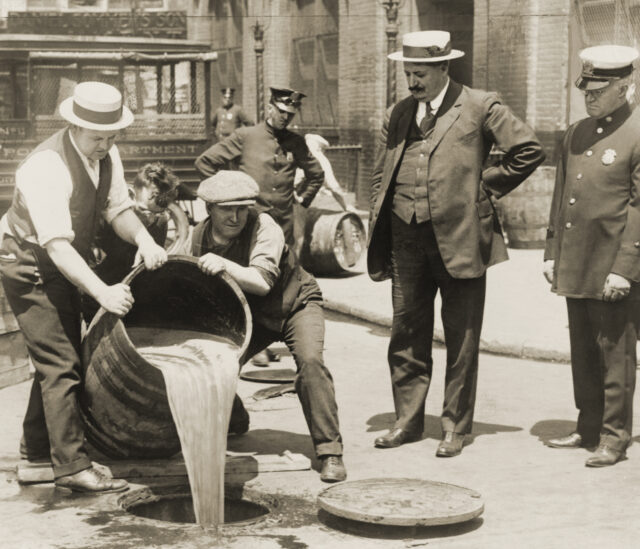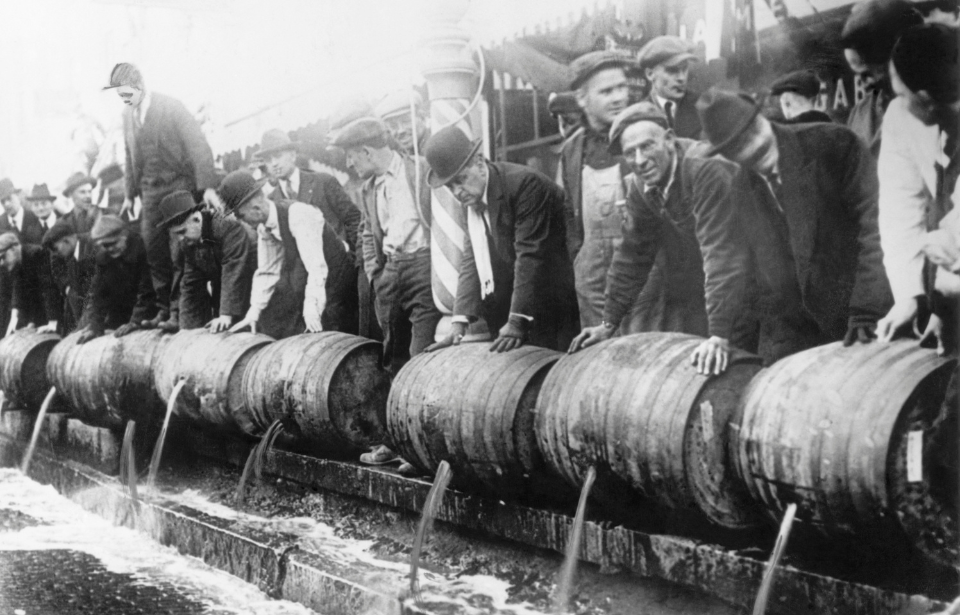On October 28, 1919, a significant event in American history took place: the passage of the Volstead Act. This law was crucial because it laid the groundwork for Prohibition, a period when the production, sale, and transportation of alcohol became illegal in the United States. Despite President Woodrow Wilson’s veto, Congress pushed through the Volstead Act, reflecting the strong support for Prohibition among lawmakers at the time.

The roots of Prohibition can be traced back to the late 19th and early 20th centuries. Many people, influenced by temperance organizations like the Women’s Christian Temperance Union and the Anti-Saloon League, believed that alcohol consumption was linked to serious social problems, including crime and domestic violence. These groups campaigned for a ban on alcohol, arguing that it would lead to a healthier and more moral society.
The Volstead Act aimed to enforce the 18th Amendment, which prohibited alcohol. When President Wilson vetoed the act, he expressed concerns that it was too extreme and could lead to negative consequences. However, Congress successfully overrode his veto, demonstrating that support for Prohibition was strong and widespread. The law officially went into effect on January 17, 1920, marking the start of Prohibition in America.
The impact of Prohibition was profound and often unexpected. Instead of reducing crime, it led to the rise of illegal bars known as speakeasies and increased organized crime. Many Americans found ways to bypass the law, leading to a culture of defiance and lawlessness. Prohibition brought about significant changes in society, as it tested the limits of government control over personal behavior.
More from us: Bootleggers Used These Cow Shoes To Hide Their Tracks During Prohibition
Would you like to see more daily historical content from The Vintage News? What if we sent it directly to your inbox every day? Sign up here to receive our daily Today in History posts.
Ultimately, the Volstead Act and the era of Prohibition would leave a lasting legacy. The negative consequences and widespread disregard for the law led to the repeal of Prohibition in 1933. Today, the story of the Volstead Act serves as a reminder of the complexities involved in regulating personal habits and the ongoing debates about government influence in our lives.
